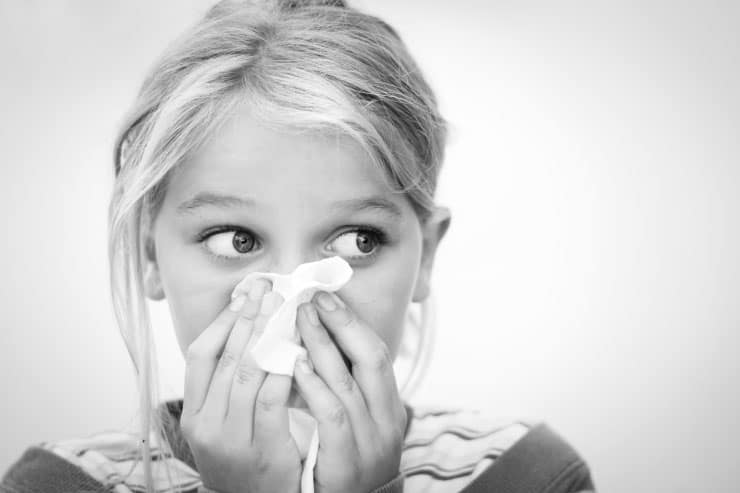
Ask Nurse Judy: Is My Kid Still Contagious?
Written by Judy Kivowitz
Photography by Photo Via IMG Kid
The seen-it-all, treated-it-all Nurse Judy Kivowitz of San Francisco’s Noe Valley Pediatrics shares her advice on common child health and behavioral conundrums.
Some of my most common questions revolve around when kids are contagious and when are they ready to go back to nanny-share, daycare, or school. There is not always a simple answer. On one hand, of course we want to be responsible parents and not expose others to our sick child. On the other hand, we want to protect our own recovering child from going back too quickly and possibly coming down with something new. In order to logically best make these decisions there are many issues that we need to consider.
Some parents have an easy time taking time off and others simply can’t afford to. It is naive to think that these aren’t real factors. What makes this so tricky is that most viral syndromes can be spread a day or two before the kids show clear signs that they are ill. Many kids may be a little fussier than usual. Perhaps they don’t eat quite as much. It is also usually a big “uh-oh” when your normally active child tells you that they think they will go take a nap now. Your antenna might be up that something is brewing, but are those reasons to miss work and keep your child at home? Of course not!
The fact is, if you child comes home from school in the afternoon and is sick that evening, most likely everyone they were with earlier that day has already been exposed and you can take that into consideration when trying to come up with the most sensible plan on when they can return. Frankly, more than likely they got exposed there in the first place.
If you are in a small share-care situation, it is essential to have a talk with the nanny and the other families involved to make sure you are all on the same page. I would suggest that you create a “sibling” relationship. This simply means that you all accept that the kids are most likely going to get each other’s mild illnesses. If you plan on staying at home until your little toddler is free from a runny nose, you will be waiting a very long time before you leave the house.
Remember that some clear runny noses are not contagious. Teething as well as some allergies can be the cause. As far as common colds go, the average child under 2 years of age has eight colds a year. While I would like to keep my youngest and most vulnerable patients free from viral syndromes and colds as long as possible, exposure to these common viruses is in fact developing their immune system. At some point they are going to have to deal with some mild illnesses. Think of it as a rite of passage.
Typically, if I have a child with a fever over 101, a new case of diarrhea, or a brand new green-mucous-producing cough or cold, it is worth keeping them home for at least a day to see what is coming next. If your child has an infection that is being treated with antibiotics, we generally consider them no longer contagious after they have been on the medication for at least 24 hours. Bacterial conjunctivitis is also usually given the all clear after 24 hours of eye drops (of course, you need to finish the course).
There is never any complete assurance that can be given that your little one is “not contagious.” Use your best common sense. When in doubt, avoid contact with anyone who is vulnerable. This would include newborns or someone with a compromised immune system.
If you are questioning whether or not to go on an upcoming play date, explain your situation to the other parents. They may be perfectly fine hanging out with you and your snotty nosed child, or perhaps they have an important event coming up and want to be more cautious. Let them decide. Full disclosure ahead of time is the best practice.
What if parents themselves are ill? Of course, careful hand washing is essential, but quarantining yourself from your child is not usually realistic unless you have a way above average support system. If you are a breastfeeding mom, we usually suggest you continue to nurse. Do make sure you are taking care to drink extra fluids and rest as much as possible.
And rest assured, spring will be here before we all know it!
Find out how to sign up for Nurse Judy’s San Francisco-based classes and workshops here. Also, for more Nurse Judy advice, read her articles on how to stock your medicine cabinet, a guide to fevers, tantrum help, and tips for mothers of picky eaters.
Share this story




